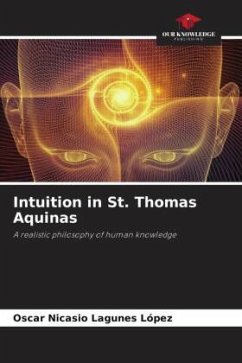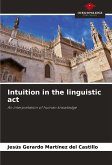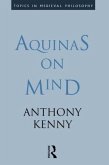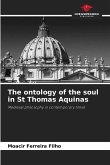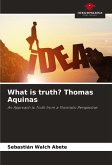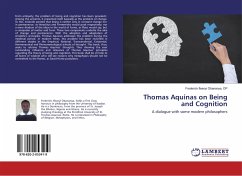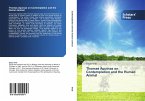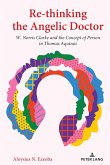This book studies the concept of intuition in the philosophy of St. Thomas Aquinas. The term is relevant to the philosophy of knowledge, because all knowledge is based on an intuition. The problem surrounding this topic is that throughout the history of ideas, philosophers have defended different positions generally located at extreme poles: either they reduce human knowledge to a sensible intuition, as in the case of the empiricists, or they limit it to intellectual intuition, as idealism does. On the other hand, the Thomistic epistemology of realism, which starts from the being of things, recognizes two types of basic intuitions in relation to human knowledge, the sensible and the intellectual, and maintains a healthy balance between them, outside the reductivisms of modern and contemporary philosophy: empiricism, rationalism, idealism, relativism, skepticism, among others. In this sense, the extreme gnoseological currents that reduce knowledge to the sensible, to reason or to human subjectivity fall into insurmountable errors from their approaches. Hence the importance of the realist philosophy of Thomas for today.
Bitte wählen Sie Ihr Anliegen aus.
Rechnungen
Retourenschein anfordern
Bestellstatus
Storno

